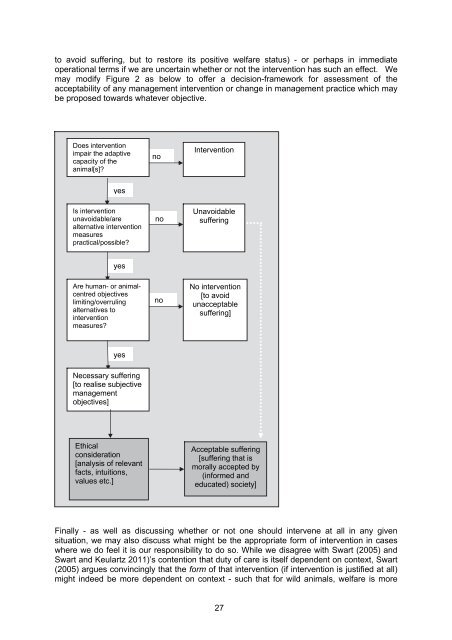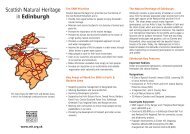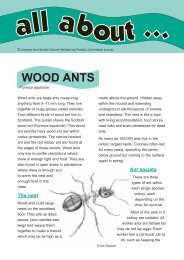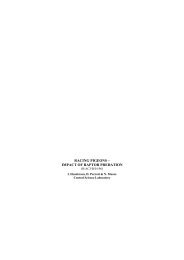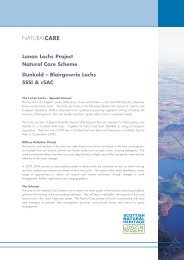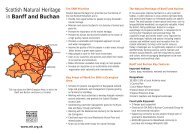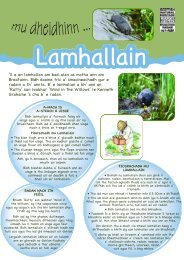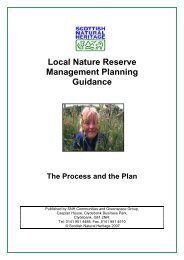Applying wildlife welfare principles to individual animals
Applying wildlife welfare principles to individual animals
Applying wildlife welfare principles to individual animals
You also want an ePaper? Increase the reach of your titles
YUMPU automatically turns print PDFs into web optimized ePapers that Google loves.
<strong>to</strong> avoid suffering, but <strong>to</strong> res<strong>to</strong>re its positive <strong>welfare</strong> status) - or perhaps in immediate<br />
operational terms if we are uncertain whether or not the intervention has such an effect. We<br />
may modify Figure 2 as below <strong>to</strong> offer a decision-framework for assessment of the<br />
acceptability of any management intervention or change in management practice which may<br />
be proposed <strong>to</strong>wards whatever objective.<br />
Does intervention<br />
impair the adaptive<br />
capacity of the<br />
animal[s]?<br />
no<br />
Intervention<br />
yes<br />
Is intervention<br />
unavoidable/are<br />
alternative intervention<br />
measures<br />
practical/possible?<br />
no<br />
Unavoidable<br />
suffering<br />
yes<br />
Are human- or animalcentred<br />
objectives<br />
limiting/overruling<br />
alternatives <strong>to</strong><br />
intervention<br />
measures?<br />
no<br />
No intervention<br />
[<strong>to</strong> avoid<br />
unacceptable<br />
suffering]<br />
yes<br />
Necessary suffering<br />
[<strong>to</strong> realise subjective<br />
management<br />
objectives]<br />
Ethical<br />
Figure consideration 3<br />
[analysis of relevant<br />
facts, intuitions,<br />
values etc.]<br />
Acceptable suffering<br />
[suffering that is<br />
morally accepted by<br />
(informed and<br />
educated) society]<br />
Finally - as well as discussing whether or not one should intervene at all in any given<br />
situation, we may also discuss what might be the appropriate form of intervention in cases<br />
where we do feel it is our responsibility <strong>to</strong> do so. While we disagree with Swart (2005) and<br />
Swart and Keulartz 2011)’s contention that duty of care is itself dependent on context, Swart<br />
(2005) argues convincingly that the form of that intervention (if intervention is justified at all)<br />
might indeed be more dependent on context - such that for wild <strong>animals</strong>, <strong>welfare</strong> is more<br />
27


